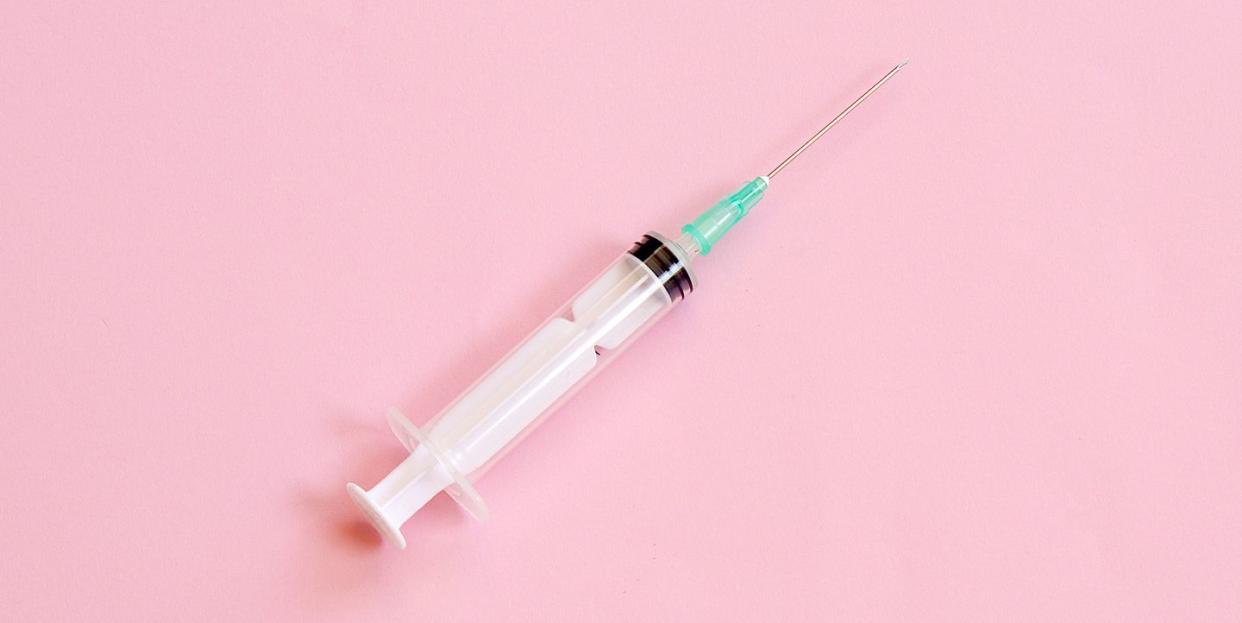Mumps is on the rise: here's everything a doctor wants you to know

Great news, everyone: cases of mumps have just hit a high for the first time in a decade! If you're wondering what the symptoms to look out for are, the best way to recover from the viral infection and whether or not there are antibiotics to treat mumps, read on. We asked Dr Andrew Thornber, Chief Medical Officer at Now Patient, to explain.
What are mumps?
"Mumps is a contagious viral disease, it's easily spread through saliva and mucus," says Dr Thornber. "Mumps can affect any part of the body, but it mostly affects saliva-making glands below and in front of the ears (called parotid glands)."
What are the symptoms of mumps?
Typically, symptoms include painful swellings (which look like lumps) on the sides of the face (usually under the ears). "In fact, puffy cheeks and a swollen jaw are the tell-tale signs of the virus," adds Dr Thornber. "Headaches, joint pain and a high temperature are also symptoms, which can sometimes show up a few days before the person gets mumps." It can also cause swelling of the ovaries and testicles if the person contracting this has gone through puberty. The good news is that none of these symptoms are permanent. Phew. "Mumps usually last between 1 to 2 weeks."

How do you diagnose mumps?
First stop: book an appointment with your GP. "Although not usually serious, mumps can lead to more serious types of infections, such as glandular fever or tonsillitis," says Dr Thornber. Your doctor will usually check to see if your temperature is raised, look at any swollen areas and examine your tonsils. If mumps is suspected, you’ll be sent for a saliva test.
Why has there been an increase in mumps recently?
"It's thought that cases are currently at a record high owing to a knock-on effect of people not being vaccinated when they were children back in the late 1990s and early 2000s," explains Dr Thornber (last year there were 5,042 cases recorded – four times the number of the previous year). So if you haven't already, now could be a pretty good time to make sure you've had both doses of the MMR (Measles, Mumps and Rubella) vaccine... Call your GP to check and if you've not had the MMR shots, they'll be able to book you in.
How do you treat mumps?
Sadly, it's a bit of a waiting game. "Antibiotics don’t work on the mumps virus. You must simply let it run its course and this can take up to a fortnight," says Dr Thornber. Try to get plenty of bed rest and fluids. Taking painkillers, such paracetamol or ibuprofen, and applying a warm or cool compress to the swollen glands can help relieve pain, too. "Mumps are usually spread by saliva or mucus, coughing and sneezing, sharing cups and utensils and not washing your hands properly."
So, time to stock up on the anti-bac gel (and, y'know, stop kissing people who you know have mumps), then...
For more information on mumps, visit the NHS website.
Like this article? Sign up to our newsletter to get more articles like this delivered straight to your inbox.
Follow Jennifer on Instagram and Twitter
You Might Also Like


